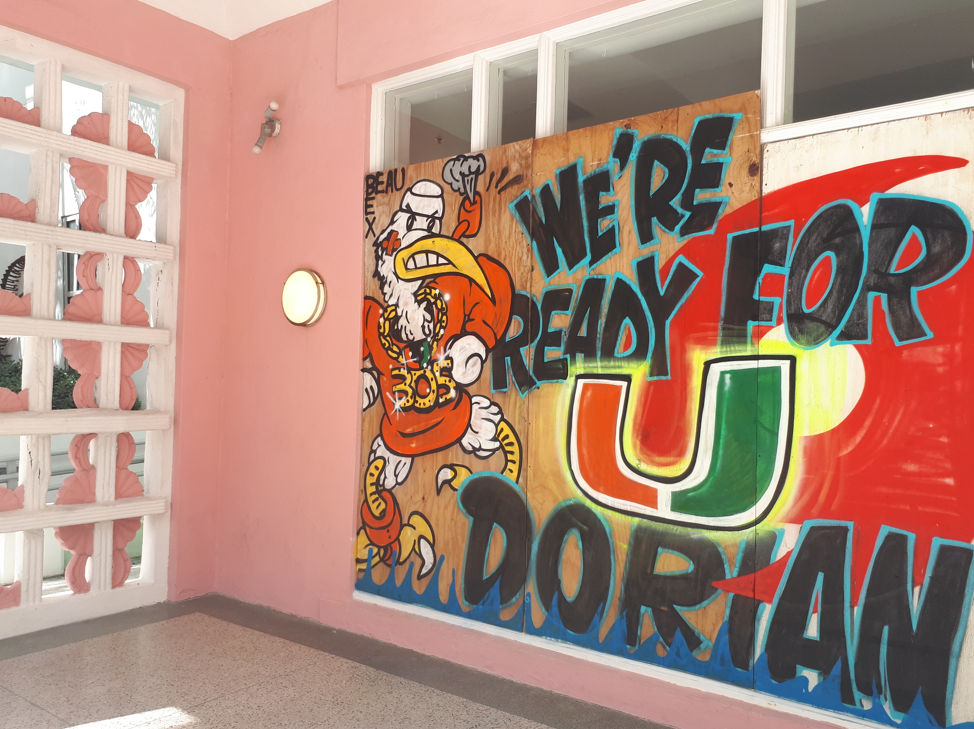blank space
By Kendra Jewell - 23rd October 2019
The air is thick here, like steam. Sometimes that steam is literal, like when I stood in line at the Winn-Dixie before Hurricane Dorian and looked out at the asphalt, summer hot, as it animated the water recently shed by passing clouds. Other times the air is an erotic suggestion, a reminder of someone else’s breath, as it sticks to me like thinned honey. Tacky sweat, called forth in beads, mingles with the wet air until I lose myself, the water of my body greeting the water of the air, finding itself so easily in another.
I should have bought water instead of focusing on lamps. The knowledge of that hit me as I was looking down at a few lonely packs of flavored La Croix, the only water option I had left to ride out the hurricane. A few minutes earlier I had watched a hipster carry Acqua Panna to his car, laughing to myself: ha! some people, needing fancy water during a hurricane. Sheepishly I piled grapefruit La Croix into my cart, wondering if my whiteness was showing. Fantasies of people fighting over Easy Mac and Top Ramen kept playing in my head, a function both of the affective mania gripping the city and my own hurricane naiveté.
I had arrived four days prior – by car from California – and for me hurricane prep day was also move-in day. Calmly, wanting to appear like a hardened storm veteran, I perused the lamps section and then the tables section at Target, settling on an overpriced but attractive mid-century stand-up lamp with one of those old-school “Edison” bulbs and a folding black card table. I would later cover the card table with a beautiful silk-threaded tapestry from Guatemala, a gift to my parents I furtively re-claimed when I found it in crumpled in the back of their china cabinet. What a place and time I had chosen to make a home. On the one hand, my arrival coinciding with Dorian was validating: as an anthropologist researching how climate change is impacting South Floridians, I could not have staged a more perfect “arrival narrative.” On the other, removing taut plastic from tables and lamps, unfurling and ironing tapestries, and arranging crystals on window ledges – windows covered then as now with corrugated metal shutters – was unnerving within the uncertainty of Dorian. At least I bought the folding table, I thought, as I screwed the Edison into position and flipped on the light. That, if not this behemoth, is portable.
Two days later, when the “cone of uncertainty” shifted away from Miami, I drove to the beach. Red flags hung limply on the leeward side of lifeguard towers, signaling rip currents. Under my breath I advised people to swim parallel if they got caught in a rip current, never toward shore, no matter how counterintuitive that sounded. I looked to the horizon and noted an unintelligible grey, a blank space, and tracked it until it condensed into puffy white clouds above me. The abstract threat of catastrophe haunted, hunted, in that grey space. I had never been through a hurricane, but I knew that grey.
Breathing salt steam I walked parallel to the ocean, for miles, hoping I would go unnoticed.
Kendra Jewell is a PhD Candidate in the Department of Anthropology at the University of British Columbia in Vancouver, B.C. She is currently researching the social, cultural, and emotional impacts of climate change and sea level rise in South Florida.


